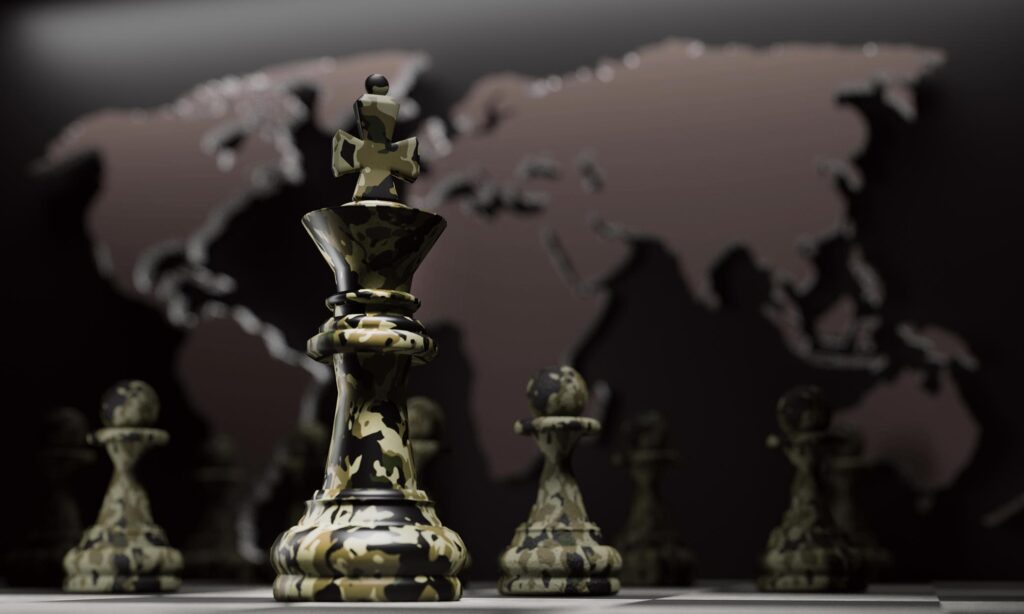Jump to other articles:
- Positive Changes Ahead for Portugal’s Golden Visa Program
- Italian Citizenship Changes 2025: Law 74 Explained
- Portugal Golden Visa Election Results: What They Mean for Investors
- A2 Portuguese Language Requirement for Portuguese Citizenship
- Court of Campobasso Rules in Favor of Italian Citizenship by Descent Applicants
What Is Geopolitics’ Place in the World of Investment Migration?

What is geopolitics? This buzzword doesn’t look like it’s going out of fashion anytime soon. In this article, we will offer a definition and show how it relates to investment migration.
What Is Geopolitics?
John Rennie Short did not coin the term: geopolitics. Yet his 2021 magnum opus, Geopolitics: Making Sense of a Changing World is one of the field of study’s defining tomes. It’s a gripping read from the very first line onward. Look: “At its heart, geopolitics is a form of geographical imagination that highlights the operation of power in, through, and around political space.”
The University of Maryland, Baltimore County’s Professor Emeritus, Public Policy covers the various types of geopolitics and how the term has evolved. There’s mention of ““geopolitical moments”” such as “uprisings, wars, and border clashes.” Short goes long on geopolitics permeating popular culture including through the Homeland TV show and via the James Bond movies.
So, you want to know the answer to the question: what is geopolitics, do you? Let’s rewind to its etymology which is an all-Greek origin story. Ge equals Gaia aka Mother Earth and polis refers to the city state of Ancient Greece characterized by its sense of community.
If John Rennie Short did not invent the notion of geopolitics, who did? That man was Swedish politician and professor, Johan Rudolf Kjellén (1864-1922). He defines geopolitik in his 1916 treatise, The State as a Lifeform, as “the science of the state as a realm in space.”
Fellow academic, the German Karl Ernst Haushofer (1869-1946) developed Kjellén’s concept of geopolitik. According to Swedish researcher, Bertil Haggman, Haushofer fused a “synthesis of history, economics, politics and the physical sciences with application of a spatial and territorial perspective.”
One of the great students of geopolitics was Henry Kissinger (1923-2023), the American diplomat who believed that national interests are “best defended through an accurate reading and skillful manipulation by the country’s leadership of the changing international balance of power.”
How Do Geopolitical Developments Affect Investment Migration?
Let’s go back to John Rennie Scott’s mention of “geopolitical moments”. Seismic events such as border clashes, uprisings, and wars matter. If these incidents happen on your doorstep, why aren’t you packing your bags or formulating a Plan B?
Whilst your parents can plan your birth, you have no control over your entry in the world. One of the biggest decisions you can make, though, is to vote on the governmental direction of your home country. In 2024, the Year of Elections, geopolitical developments dominate more than at any previous time in history.
Now this growing geopoliticization could tilt the result in the favour of your desired candidate. Or it could do the reverse. You should, however, already be looking into a contingency plan to make a getaway from an election result your vote could not do enough to avoid.
The same year that saw the launch of John Rennie Short’s Geopolitics also delivered Ray Dalio’s Principles for Dealing with the Changing World Order: Why Nations Succeed and Fail. 3 years down the line, Dalio points out that his survival guide is even more salient than in 2021.
In a related TIME article, he turns harbinger of a new US Civil War, alleging that America’s “approaching the point in the internal order-disorder cycle when you will have to choose between picking a side and fighting for it, keeping your head down, or fleeing.”
One can extrapolate Dalio’s thinking to apply to a turbulent year in French parliamentary history. It’s easy to see what is geopolitics’ role in a weak middle struggling to contend with both an extreme left and a far right. This battle against the excesses of populism is being played out across the world, with the centre-left Labour Party’s UK triumph at most a result of increasing polarization.

Find out How Citizenship by Descent Can Help You Restore Equilibrium
Citizenship by Descent gives you a chance to emigrate to more tranquil shores or at least have the option available at your disposal. Not every country resembles a warzone with two extremes adopting a win-at-all-costs mentality. There are refuges where you won’t feel the aftershocks of geopolitics so strongly, given that the nation in question places conciliation above conflict.
The Irish Citizenship by Descent Programme is a case in point. It’s your gateway to an Emerald paradise of a lifestyle that is Caribbean in every way, save for the considerably less tropical weather. It’s also a society that largely eschews extremism.
Another example of finding a safe haven to escape stormy, troubled waters is the Polish Citizenship by Descent Programme. Where many fellow Central European countries have steadfastly steered an authoritarian course of politics, Poland returned to a centrist position in 2023. Judy Dempsey’s Strategic Europe duly celebrates A New Start for Poland.
Learn How to Secure an Escape Route With Residency by Investment
Residency by Investment is a fantastic investment migration solution if you want to lessen the impact of geopolitics. We helped craft and set up the Anguilla Residency by Investment Programme. It allows you to settle in an exclusive bubble that isolates you from the worries of the world.
Canada is the birthplace of modern Residency by Investment. The Canadian Start-Up Visa is a route to a settled life, and potential citizenship, in one of the world’s most stable countries.
As Mélanie Joly, Minister of Foreign Affairs of Canada, describes in an Address on Canadian Diplomacy Amidst Geopolitical Uncertainty: “We have a long democratic tradition, two official languages, a rich multicultural society, a dedication to reconciliation and a deep commitment to the rule of law.”
Like Canada, Greece is a mother to a concept and that idea is democracy. Dig around the history of Ancient Greece and you’ll find democratic roots. While modern-day Athens is quite a bit different from its classical past, time stands still on the country’s many islands made more accessible with the acquisition of a Greek Golden Visa.
Our final recommended Residency by Investment Programme is the UAE Golden Visa. The United Arab Emirates has positioned itself with great skill to make itself an attractive investment migration destination wherever you come from. Indeed, The Economist claims the UAE offers a masterclass in How to thrive in a fractured world.
Citizenship by Investment Solutions To Combat Geopolitical Headwinds
Let us conclude with Citizenship by Investment. This is your chance to invest in a new nationality and secure a more powerful passport. When the effects of geopolitics begin to cloud your existence, your increased global mobility is your get-out.
If you feel more insulated against geopolitical developments in an island setting, you should consider Caribbean Citizenship. The Eastern Caribbean is home to 5 Citizenship by Investment Programmes. Take your pick from obtaining second citizenship in Antigua and Barbuda, Dominica, Grenada, St Kitts and Nevis, or St Lucia.


Knowing the Answer to the Question: What Is Geopolitics? and So Much More, What’s Your Next Move?
You now understand what is geopolitics’ place in our industry and your life. The natural progression is for you to talk to an investment migration expert such as Latitude Group to size up your options. So, don’t delay and contact us today.
 Back to News
Back to News